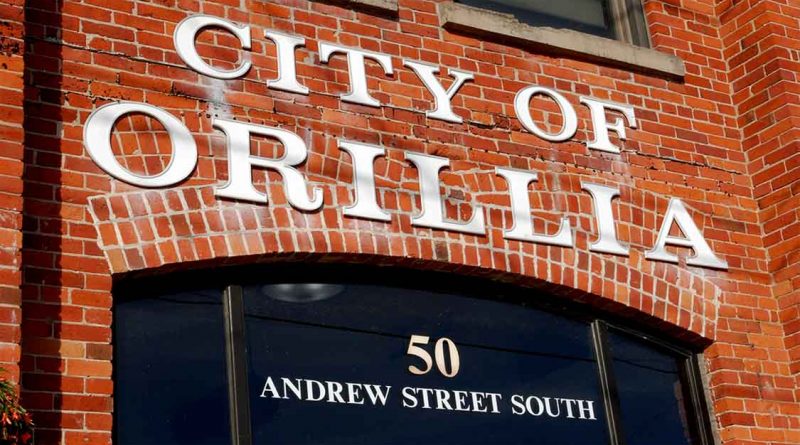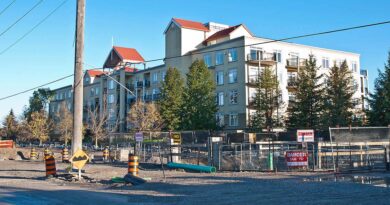Council Preview
By John Swartz
Orillia council has the next to the last committee meeting of its term Monday at 4 p.m. There are 4 items on the consent portion of the agenda, all of which will have consequence beyond this term.
The Farmers’ Market hours will be changed to 9 a.m. to 1 p.m. starting January 1. Two thirds of the 33 vendors asked favoured the new time. The reasoning is the busiest time is between 10 a.m. and noon, and many noted a significant number of people show up near the 12:30 p.m. mark when vendors are packing up to leave.
A report from development services and engineering involved amendments to policy for properties in response to the province’s order to make getting development permits faster. One of the changes requires applicants have the public meeting (such as the one of last week) and the consultation period completed before they can submit a completed application and the clock starts ticking for council approval of a development.
This is response to the province adding a a shot clock of 120 days for Official Plan amendments and 90 days for zoning amendments, or municipalities have to refund fees. Often issues are revealed at public meetings, either by council wanting changes to a proposal, or neighbours asking for changes. There have been instance where pages of changes are generated for developers to address. The key difference is when an application is considered to be complete. It appears that point in time changes from before public meetings to after. Changing when the clock starts reduces the chance Orillia would have to repay application fees.
The name of the public meeting accompanying proposals is also being changed to Applicant’s Public Open House which changes the idea the City is holding the public meeting. Developers often present what are thought to be completed applications, only to have design changes asked for at public meetings. This change removes any doubt about when an applicant can consider their proposal complete.
One thing which might be problematic, is removal of the 14 day period between public meetings and when applications appear on council’s agenda for approval. Other than speeding up the process, the report doesn’t say what the implications are for large projects that sometimes go back and forth before council and developers agree. This may be mitigated somewhat by implementing changes to the Official Plan and zoning by-law outlining exactly what studies and consultations are necessary to have done before submitting applications. Note worthy is having an applicant submit proof of their consultations with neighbouring property owners.
Next up is a report recommending the City opt out of the Line Fences Act. This one goes back to 1834 and was necessary to keeping farmers happy with each other. One might have noticed there are no farms in Orillia.
Staff say the number of times they have had to respond to sorting out property lines for owners who want to put up fences (and neighbours who don’t want the fences, or to pay a portion of the installation) has gone up dramatically (7 times) over what was normal 6 years ago. The City’s main avenue of response is to mediate a resolution, or to resort to ordering a line review, which property owners on both sides pay for and is expensive. The viewers have the power to issue orders. Staff say this puts them in a position of being the bad guys for something they have no control over and really should be a civil matter for a court to decide.

Call before you dig, should be a top-of-mind consideration for all homeowners. Between 2019 and 2021 The City had 4,710 requests for utility locates from property owners and excavating companies.
Many of them involved minor excavating and used up disproportionally too much staff time. Most utilities in Ontario use a centralized system called Ontario One Call (800-400-2255) and that group reports incidences of damaged infrastructure is much lower than even using a full utility locate. Staff are recommending council give authorization for the environment and infrastructure department to send people requesting locates to the alternate service. The City will still do its own locating for water, sewer and electrical infrastructure it owns. This move does not remove liability from excavators.
Those four items will likely pass all at once with little discussion.
The Rest Of The Agenda
Staff have a report outlining some changes to the City’s procurement policy. Changes to international trade agreements and to union contracts need to be recognized. Staff also want to shift some of the signing authority to lower levels of the management structure, which is accompanied with more clearly defined criteria (i.e. the same level of supply choices and approvals isn’t need to buy paperclips, as opposed to what is need to source paper shredding services).
There is one enquiry motion from mayor Steve Clarke. He wants staff to do an analysis of non-traditional options to help create more affordable housing.
In particular, he’d like information on what the City can do to address affordable housing, increase housing supply, deal with renovictions and homelessness. The state of affairs is such inaction at the provincial and federal level is forcing municipalities to take action. The problem is municipalities shave fewer resources, legislative authority, and a tax base to pay for local action. A report like this may outline steps to be taken, and at the same time illustrate how little power municipalities have to address the problems.
The council meeting can be watched live on Youtube.
(Photos by Swartz – SUNonline/Orillia)
CORRECTION: Two council meetings following the election were overlooked and it was incorrectly noted Monday’s meeting was the last committee meeting of this council’s term.




